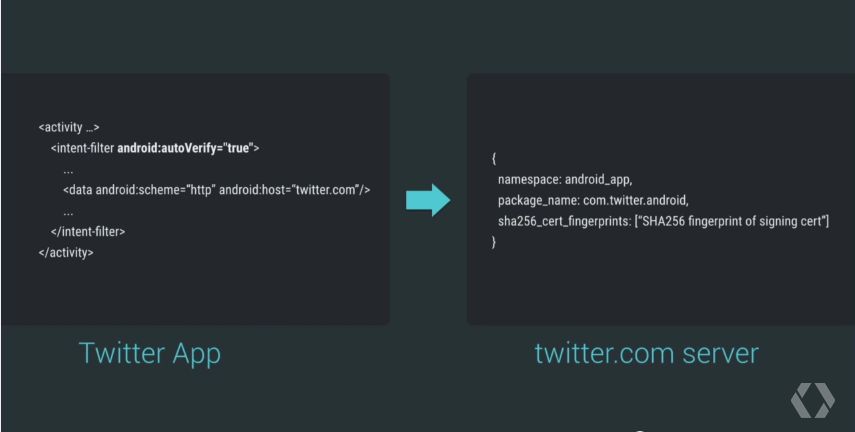The biggest tech companies have been fighting over users for more than a decade now. In that time, the battles fought, were done so on multiple fronts: hardware supply, software distribution, and internet traffic. As users and internet traffic moved more towards mobile, these companies followed them, each with a master plan to dominate the mobile landscape.
Here is what's common in these plans:
Create your own deep linking solution.
Convince developers to use it.
Access gigantic content and user generated data.
Profit.
To make sense of this, we have to understand what makes mobile devices so different from desktop computers.
Mobiles are truly personal devices, we carry them around with us, use them for checking in with friends, communicating with family - even playing games on the toilet! Desktop computing needs are far simpler; many use the platform for work or more structured activities like watching a movie, sending emails or playing games. If our use cases for mobile and desktop differ greatly, so to then must the experience. In a recent survey by Smart Insights, it was discovered that desktop users were dependent on web browser interaction for the majority of their tasks, while over 80% of users on mobile preferred to use apps in their experiences.
The challenge tech giants face is that apps are closed data silos.There is no global view of all applications and app behaviors.
As such developers build based on their own assumptions of the industry and the experiences and data gathered in their own ecosystems. Deep linking could hold the answer to this problem, allowing developers to build products that are no longer alone, but that can be tied together through contextual links. Each major player in mobile - both hardware creator and large software developer is building their own deep linking solution, and they are trying to convince developers to use it, and get access to the content. It’s no wonder that Facebook, Google, and Apple have all been talking a lot about mobile deep linking.
Let's take a closer look at the later two:
Google built a strong foundation for deep linking, with its first-class search engine and its Android OS that drive an enormous amount of data to the company which extracts valuable information out of it. As Benedict Evans and many other put it, Google is a vast machine learning engine that feeds on data. Google is committed to deep linking, and already has done or announced how it plans to persuade developers:
App Indexing on Android
Google has started indexing Android apps last year through its App Indexing API. First the content of the apps have started appearing in the search results of the signed-in users - if have the apps installed. Google gave a new tool to online businesses for app re-engagement, and the success was obvious: in the last three months of 2014 15% of Google searches carried out on Android devices have returned app deep links, while clicks on deep links have increased over 10 times. Since then, Google has made two changes in the mobile search for Android users:
- Starting April 21, Google has began to use information from indexed apps as a factor in ranking for signed-in users who have the app installed. As a result, Google may now surface content from indexed apps more prominently in search results.
- Searching on Google can also discover your app if they haven’t installed it yet, thus search drives app discovery on Android.
App Indexing for iOS
Google made App Indexing available for a selected group of iOS apps few days ago. The content of these apps will begin appearing on iOS in search results, but only for users who have the apps installed on their phones.
Goo.gl - short and deep links
Google announced a new feature of their goo.gl short URLs which now allow users who click on them to open the right page in either the browser or, if they have the app installed, at the exact location intended in the app.
The goo.gl links work similarly to HOKO smart links with two rather big differences:
- Goo.gl links don’t have deferred deep linking capability, thus won’t help app discovery. If the user doesn’t have the app installed, the link will open in the browser without mentioning the app, or suggesting the app install.
- The short links don’t include intelligent components, hence they can’t provide traffic metrics, and since they don’t help app discovery, neither can they track app installs. These are vital for mobile marketers. In contrast, HOKO smart links measure link clicks, app installs and help user attribution.
Deep Linking in Android M
During Google I/O, David Burke, the vice president of engineering at Google gave a glimpse into the upcoming Android M operating system. Currently on Android, web links opened in an app will generate a popup screen where the users can select where to open the link - in the web or in an app. However, the planned the auto-verify feature of Android M would allow app developers to skip this step, and direct users directly into their app without giving a choice to users.

Still, the biggest story is Google Now On Tap, the new feature of Google's smart assistant system. What it does is basically being aware completely of the user context - both physically and on-screen - and the users "knowledge" including the content of the installed apps, and providing supplementary information, action suggestions and smart search.
Google Now On Tap is an impressive technology and users who don't fear for their privacy, will embrace it. Apps, on the other hand, should be concerned, because Now On Tap will grab content and actions from the apps thus make opening them unnecessary.
Apple
Apple gave a taste of the latest full version of iOS on WWDC 2015. For developers, Apple is adding many improvements and new frameworks, e.g. game developers will get three whole new frameworks in the iOS 9 developer stack. But from our perspective, the biggest bomb of the event was the Deep Link Search API and the intelligent Siri voice assistant.
Apple search
The apps that integrate the Deep Link Search API basically allow Apple to index their content. Craig Federighi provided an example of searching for “potatoes” in the search window, which led to recipes from third party app Yummly. The app content is deep linked in search, meaning that if the user clicks, she will go directly to it into the app.
Native search function baked into the OS, so all search initiated on iOS will have a chance to return app content. Why is this important? Because it will create new opportunities for your app to get in front of users and engage with them. This will help both app discovery and re-engagement.
Intelligent Siri
The new features of Siri are really similar to what Google announced for Google Now. The smart assistants utilize contextual search that will look into – alongside including most frequent contacts – the most used apps as well. There are differences but not in how they treat the app ecosystem: they eat it up.
Conclusion
Google’s legacy search is a mammoth, but it’s focused on the web. If Google wants to save its search business, it has to get control over the mobile apps - and their quickly growing share in generating user data.
For Apple, the search is not about gaining control over data, but tightly controlling the user experience. They control the hardware, the OS and heavily influence the available apps for iPhone. The WWDC showed that Apple wants to expand this influence. Why? Because what Apple sells is the outstanding overall experience, and the unresolved app-to-app communication is a huge threat to that.
It's clear that both companies take deep linking really seriously. It will be mandatory for mobile apps to integrate deep linking if they don't want to fall out of the mobile game - similarly how news outlets were forced to become social in the Facebook era.
Getting started with deep linking
Deep linking enables you to create links to your app’s content and make them appear in search results, smart assistant suggestions - this is SEO 101 in the matured mobile age. But if you want to get ahead in the game, you should implement it via a deep linking SDK (see HOKO’s install guide for iOS and Android) that also enhances your marketing capabilities, e.g., with HOKO smart links that work on every platform but also have deferred deep linking capability and an intelligent component, thus help your app discovery and track traffic metrics, clicks, and app installs.
If you want to get ahead, use HOKO: it’s free and super easy to use. Register here, and make your app deep-link-ready in 20 minutes!
You can learn more about deep linking, just check out our Deep Linking 101 series.
If you would like to add something to this post, please leave a comment or tweet to @hokolinks!
